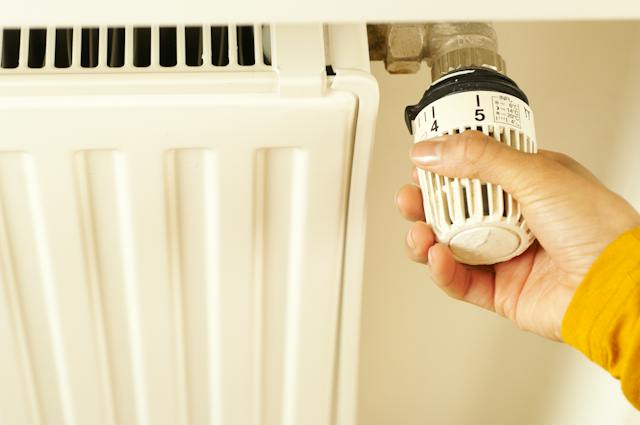Despite experiencing the warmest December, January, and February globally, it remains crucial to ensure that your heating system is functioning effectively. In the end, when it’s cold outside, everyone wants to come into a warm home.
But what happens when your heating system throws a tantrum, leaving you shivering in the freezing embrace of winter? It can be a chilling experience having to deal with such failures in your heating system. In this guide, we’ll take you step by step through five aspects of solving common heating system problems.
Troubleshooting Common Heating System Problems
Before succumbing to despair, consider troubleshooting your heating system yourself.
Check the Thermostat
First, check your home thermostat. Is it programmed at the correct temperature? It sometimes happens that fixing this small detail is enough. If you have a programmable thermostat, double-check its schedule to ensure it hasn’t gone rogue.
Also, swap out the batteries to eliminate power-related issues. But if your heating system still does not cooperate, then perhaps it’s time for you to call your trusted HVAC contractor. They will diagnose it as well as fix any complicated problem.
Replace the Air Filter
A dirty air filter will hamper the heating system’s efficiency or even cause more severe damage in the long run. For that reason, replace your air filters regularly. This will fully depend on the system, but you can replace it every 1-3 months.
If you’re not sure about the type or size of filter then you can talk to your HVAC contractor. They would advise on the best filter you need to use in your specific system, depending on your needs. A well-maintained filter goes a long way in ensuring your HVAC system works properly.
Check the Circuit Breaker
In other instances, a tripped circuit breaker can efficiently cut off the flow of electricity to your heating system. Look into your electrical panel, and if you find any flipped switches, reset them accordingly.
Bleeding The Radiators
With time, air can build up and get trapped in your radiators and reduce their efficiency in heating your home. Bleeding a radiator is an easy way of removing that trapped built-up air.
You should have either a radiator key or a flathead screwdriver on hand. Switch the heating system off, put a towel or a bucket to collect water under the radiator valve, and open it slowly. You will hear hissing as air is coming out. When water starts to flow from it in a relatively steady stream, close the valve back to its original starting place.
Checking Ductwork
Ductwork inspections are essential to ensure every corner of your home receives the warm air delivered from the heating system, through all the ducting.
Begin a visual inspection for any gapping leaks, or obvious blocked or closed-off areas. Check problems with joints and connections built in place, which are generally common sources of trouble. Take the time to fix any troubles found by using duct tape or mastic sealant to seal small gaps.
Regular Maintenance
Don’t underestimate the power of regular maintenance in keeping your heating system in top-notch condition. Schedule regular annual maintenance with your HVAC contractor in order to identify and address potential issues before they mature into major problems.
The professional technician will check and clean the vital components, inspect for deteriorated parts, and check whether your system is operating at peak performance while they’re performing a tune-up service. It not only prolongs the life of your heating system but also saves you money on energy bills in the long run.
Therefore, be sure to set up the annual maintenance appointment before the heating season starts.
Emergency Situations and Safety Measures
In exceptional cases, apparent risks emanating from heating system breakdowns can cause enormous safety risks. If a pungent gas aroma fills your home, strange noises rumble from the furnace, or a sudden illness strikes, evacuate immediately! These are not signs of a friendly houseguest.
Gas leaks don’t play games. If you suspect one, dial 911 or your local gas emergency service without delay. And remember, carbon monoxide detectors and smoke alarms are your silent sentinels, always vigilant against unseen dangers.

Final Thoughts
A broken heating system can throw chaos into your life at the absolute worst times. By following these five essential steps above, you can avoid or even overcome other problems that normally occur in such systems.
Just don’t forget that your HVAC contractor is always there to help, always making sure that your heating system keeps running like a workhorse and is energy efficient. So, feel free to seek them any time you have a problem with the heating system. With little care and professional help, your home will remain warm and cozy all through the winter.




Comments are closed.